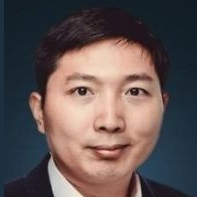Advances in Bioleaching of Sulfide Minerals
A special issue of Minerals (ISSN 2075-163X). This special issue belongs to the section "Mineral Processing and Extractive Metallurgy".
Deadline for manuscript submissions: closed (22 March 2024)
Special Issue Editors
Interests: Bioleaching; Bioremediation; Environmental Microbiology; Wastewater treatment; Recycling
Interests: Microbiology; Ecology; Metal Biotechnology; Bioremediation; Recycling
Interests: microbiologically influenced corrosion; marine corrosion; biofilms; bioleaching; materials
Special Issues, Collections and Topics in MDPI journals
Special Issue Information
Dear Colleagues,
Due to the fact that sulfide minerals contain very valuable and useful metals, the investigation and understanding of their mineralogical characteristics are crucial to the recovery of useful metals through mineral processing and extractive metallurgy.
Future studies on practical metal recovery techniques should effectively cut down on pollution production and create low-energy technologies.
Utilizing native microorganisms (such as those that oxidize sulfide, iron, and other metals) to leach useful metals from sulfide minerals is a process known as bioleaching. Compared to chemical leaching, it is a cost-efficient and eco-friendly leaching method.
A key element in increasing bioleaching efficiency is the understanding of the interaction between the mineralogical and chemical characteristics of recovered minerals and native (indigenous) microorganisms.
This Special Issue focuses on the study of the scientific, engineering, and financial aspects of the preparation, separation, and purification of ores, mineral products, and extraction of metals, using both physical and chemical techniques with a focus on mineral processing and extractive metallurgy. Contributions to plant operation and techniques are encouraged, especially those that combine scientific knowledge of a process with its engineering and financial ramifications to produce conclusions that are useful in real-world applications.
The journal also discusses the industrial relevance of laboratory-scale research as well as the development of novel processes in the lab. The processing of wastes and the recycling of materials using extractive metallurgical and mineral processing principles is also interesting.
A Special Issue will be devoted to collecting papers on recent “Advances in Bioleaching of Sulfide Minerals” describing the novel findings of such aspects, especially those pertaining to strategic metals, from both a fundamental scientific and an industrial point of view.
Dr. Arevik Vardanyan
Dr. Narine Vardanyan
Prof. Dr. Ruiyong Zhang
Guest Editors
Manuscript Submission Information
Manuscripts should be submitted online at www.mdpi.com by registering and logging in to this website. Once you are registered, click here to go to the submission form. Manuscripts can be submitted until the deadline. All submissions that pass pre-check are peer-reviewed. Accepted papers will be published continuously in the journal (as soon as accepted) and will be listed together on the special issue website. Research articles, review articles as well as short communications are invited. For planned papers, a title and short abstract (about 100 words) can be sent to the Editorial Office for announcement on this website.
Submitted manuscripts should not have been published previously, nor be under consideration for publication elsewhere (except conference proceedings papers). All manuscripts are thoroughly refereed through a single-blind peer-review process. A guide for authors and other relevant information for submission of manuscripts is available on the Instructions for Authors page. Minerals is an international peer-reviewed open access monthly journal published by MDPI.
Please visit the Instructions for Authors page before submitting a manuscript. The Article Processing Charge (APC) for publication in this open access journal is 2400 CHF (Swiss Francs). Submitted papers should be well formatted and use good English. Authors may use MDPI's English editing service prior to publication or during author revisions.
Keywords
- Sulfide minerals
- Metal extraction
- Bioleaching
- Chemolithotrophs
- Recovery
- Biosorption







